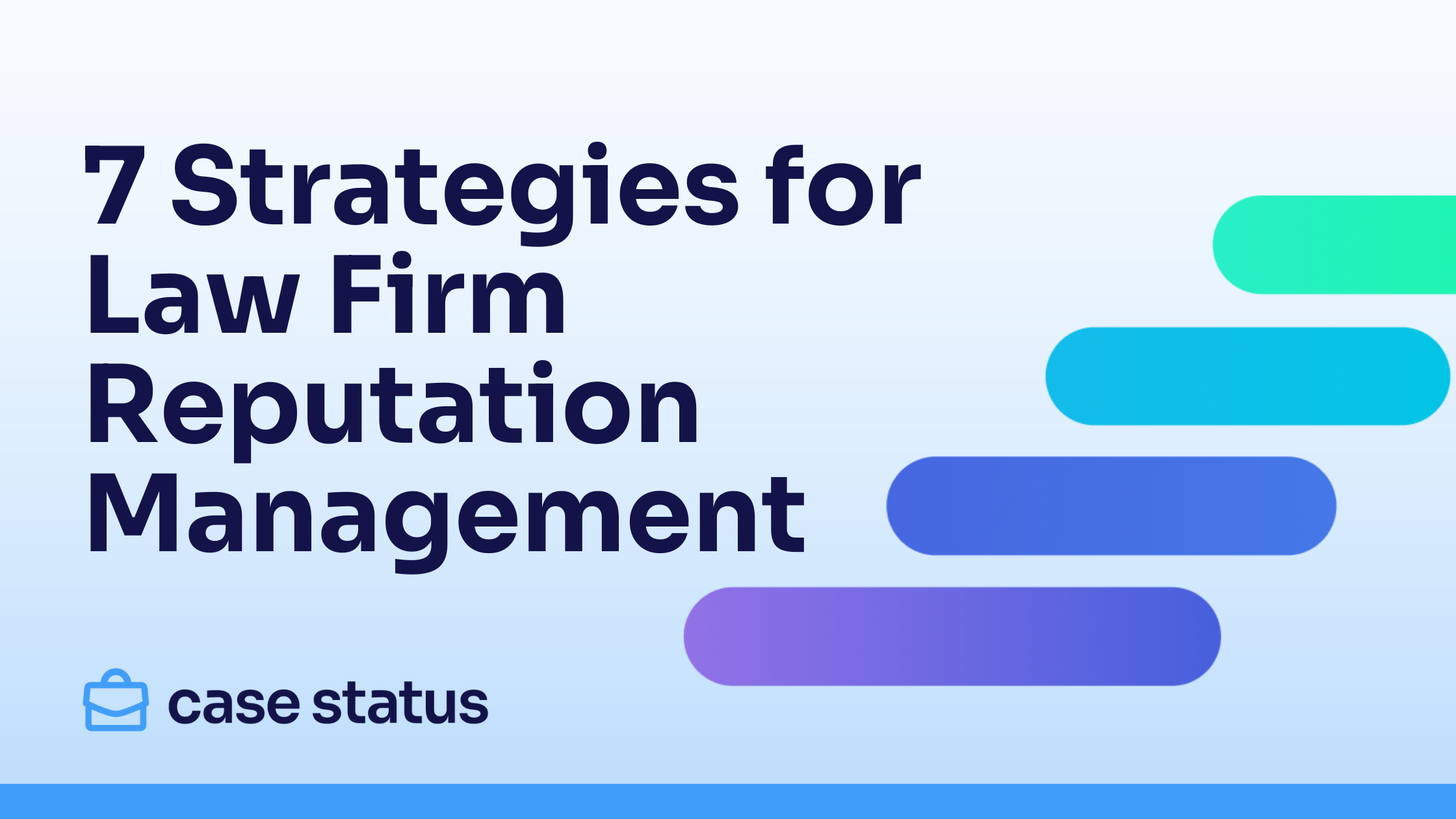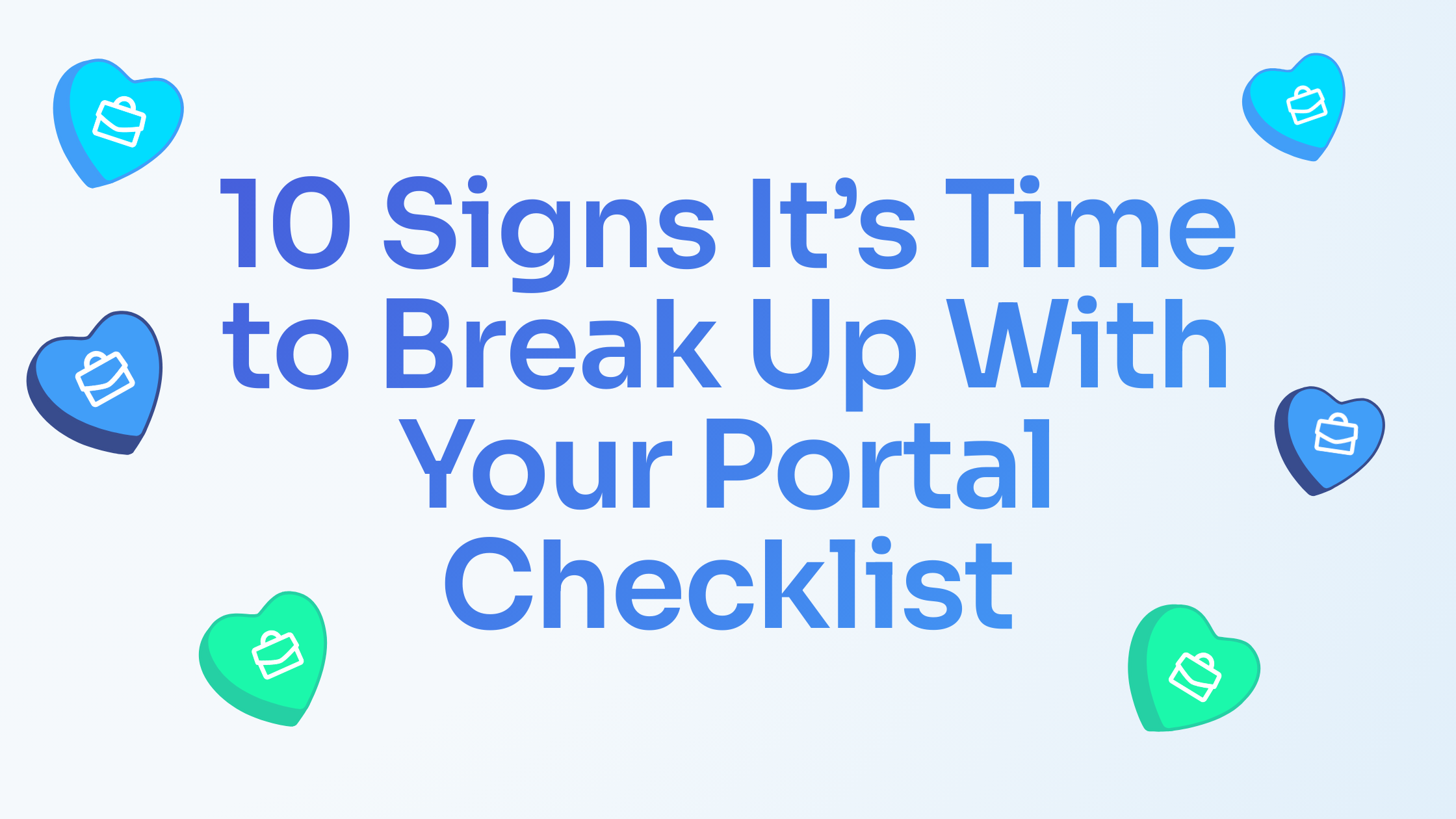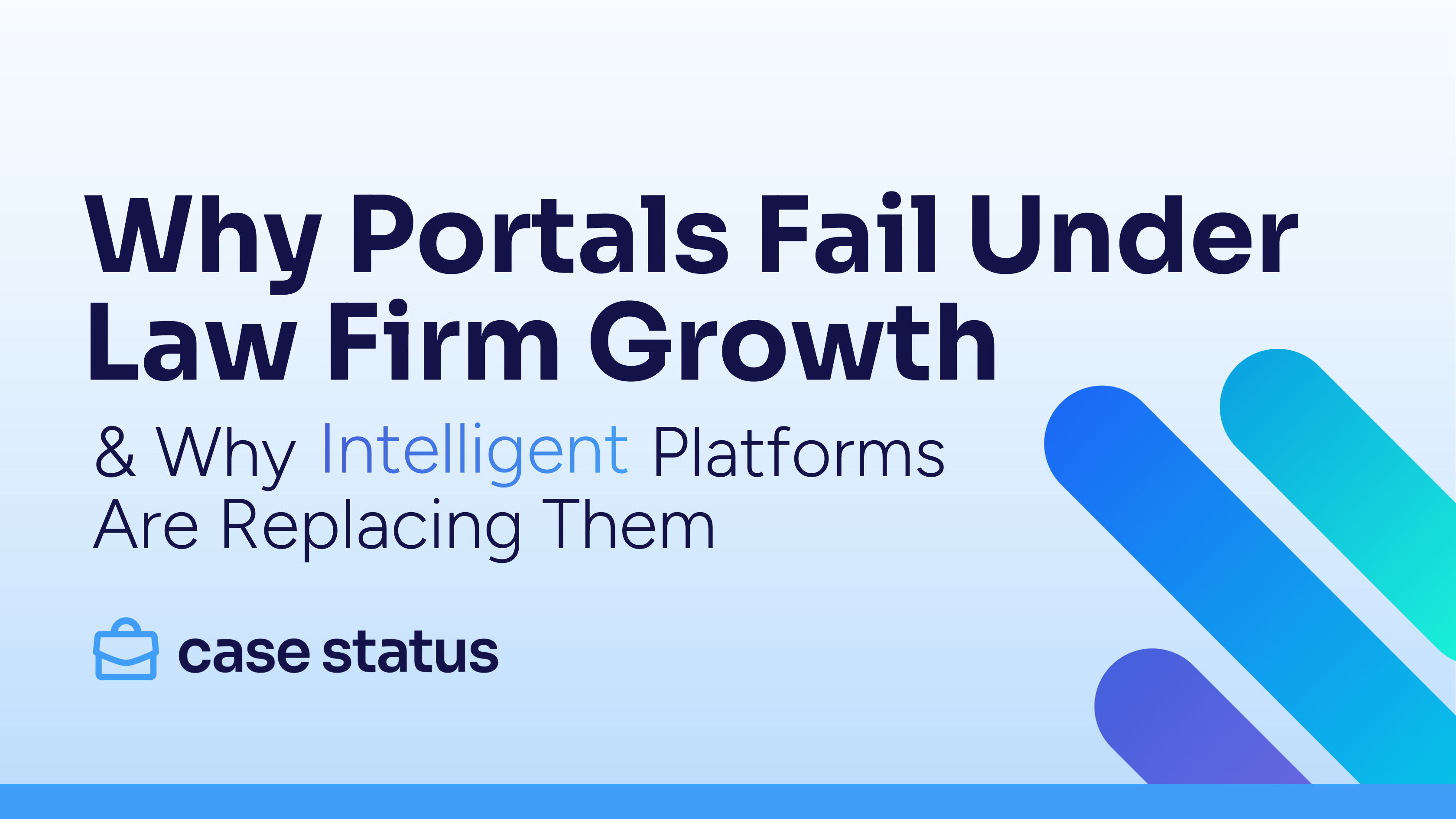
How law firms acquire clients is a question that constantly occupies the minds of many legal practitioners. You trained to be a lawyer, not a salesperson. Yet the two careers have striking parallels — you have to gain leads, close deals, and satisfy customers to keep your business thriving.
No one brings business to you as a law firm. Even if you’re lucky to get some word-of-mouth referrals, you need a more consistent marketing strategy to ensure you’re always attracting new people to your practice.
And that takes two things: marketing and persistence.
Legal marketing might seem overwhelming, but it can be broken down into simple steps. Using these as a foundation, you can start to build your firm’s online presence, improve your customer experience, and create a sales funnel (marketing term, we’ll get to it soon) that helps you continuously grow.

How Do Lawyers Find Clients?
It would be great if there was a “Law Firm 101” class in law school that taught you about law firm growth strategies. But once you’ve passed the bar and you’re a lawyer, it can feel like you’ve been let loose onto the last frontier.
You’re the only one who can control your destiny. And in this case, that means building a law firm based on limited experience, hoping that you’ll manage to convince enough people to choose you over your established competitors. No pressure.
We know this experience all too well, and that’s why we want to make it easier for legal professionals to gain the marketing know-how they need to start building their practice. These tips also apply to established firms who may have clients but are struggling on knowing exactly how law firms acquire clients.
So let’s get to the point: how do you generate legal clients?
The answer is good marketing. But we can go a lot deeper and address specific ways lawyers get clients, like a great website, customizable intake forms, paid ads, social promotion, and so on. That’s great, you might be thinking, but how do I actually get those? How do you ask clients for reviews? And how do you get clients to refer you?
This is where a marketing strategy becomes invaluable for your practice. It allows you to set clear, measurable objectives, i.e. “get five new reviews in 60 days.” There’s still a out outside of your control (you can’t make your clients recommend you, after all), but you can use proven techniques that increase your odds of success.
Because this isn’t a legal marketing guide, we aren’t going to delve into the finer points of devising a strategy and implementing it. But we will give you a rundown of the key elements. Think of this as a quick and easy legal marketing checklist:
- Create a professional website that is optimized for users on mobile devices.
- Connect your firm email to your site’s contact page, so you can receive inquiries from leads.
- Optimize your website for search engines using local-based keywords, e.g., “personal injury attorney in San Diego.”
- Create a Google Business profile for your firm and include a link to your site
- Register and verify a Yelp account, so you can receive and respond to reviews, comments, and questions
- Consider social media marketing on YouTube, Facebook, or LinkedIn (depending on your target audience’s preferred platform)
The goal of your entire marketing strategy is to guide people through a sales funnel that ultimately leads to becoming a client. A sales funnel is a journey that someone takes. A lot of lawyers think it starts when someone googles “lawyer near me,” but it’s actually much earlier than that.
The sales funnel can start when someone gets arrested and realizes they’re going to need an attorney. Or when they get hurt at work, are laying in the hospital, and realize that they’re going to take legal action against their employer.
You’re not a salesperson, you’re not a marketer, but you are a lawyer, so you need to understand how to perform all three of these roles effectively to build a successful law firm.
Don’t worry — there are plenty of tools out there to make it happen without losing your mind.
What do clients want most from their lawyers?
Ask an attorney this question and they might say, “to win their case,” but they’d be wrong (sort of). While they do care about the outcome of their case, clients want a lot from their lawyers before that happens.
It turns out legal clients are just like the rest of us. They want respect, honesty, and open communication.
What legal clients really want is quality client service from the firm they’re putting their trust in.
So now, you just have to figure out how you’re going to give it to them. This means going beyond basic pleasantries to deliver genuine support and compassion for their experience.
Sometimes, lawyers can feel a lot like therapists. Let’s add that to the list of “jobs I didn’t go to law school for.”
Jokes aside, you can improve your law firm’s business model by simply taking the time to invest in client engagement. This can become quite difficult when you have 12, 20, or over 50 active cases at once.
The only way to manage a growing firm’s clientele is to embrace technology. Namely, we suggest finding a good CRM and connecting it to Case Status, the industry-leading client app.
Why Is Client Care Important?
Well, from a legal standpoint, client care is part of your job. You can’t be an ethical lawyer if you treat your clients poorly. There’s a lot more to it than that, though. Client care for your law firm is the largest determining factor for referrals.
If your client service is lacking, then you run the risk of other people being told just how subpar it is. When you ask clients to write a review, they’ll likely take you up on that offer — much to your horror and embarrassment.
Client care has many benefits for a practice, including:
- Greater communication that helps strengthen a case
- Higher customer satisfaction rates that lead to positive reviews and referrals
- Less phone calls, emails, and notes flooding your firm every day
- More time to spend your billable hours performing legal work
It’s the legal technology you implement along the way that will allow your firm to scale without compromising the quality of client care.
How Do Clients Choose Legal Firms?
Finding a lawyer is a lot like finding a good plumber. You go on Google, search “lawyer near me,” and check out the top-rated results. Do you know what the best plumbers and lawyers in any city have in common? Great reviews.
Enhancing client care is the best way to ensure your firm gets great reviews after a case closes (and sometimes even beforehand). Case Status has been shown to boost both reviews and referrals from satisfied clients.
Our legal client app is suitable for both small and large firms, so whether you’re managing a handful of clients or over 100, Case Status ensures they get the best communication at all times.
Not only does Case Status reduce inbound calls and emails, but it also allows lawyers to automate messaging, send reminders, create and send bulk messages, and more. Built-in messaging is paired with integration partners that allow you to sync everything that happens in Case Status with the industry’s top CRM platforms.
If you’d like to learn more, schedule a free consultation with one of our team members today. We’d love to tell you how Case Status could help your firm close more leads and take its customer satisfaction rates to new heights.



